
I stumbled on Marie Kondo’s book, ‘The Life-Changing Magic of Tidying up’ after trying to declutter for several years.
She points out that there are only two reasons for holding onto things we don’t need or use.
- ‘Fear of the past’
- ‘Fear for the future’
When I read this it was like a lightbulb turned on and I finally understood my own behavior.
‘Fear of the past’
It may be easier to identify why we are afraid of things from the past. If you had a traumatic experience as a child it is natural that you will try to protect yourself from similar experiences.
It doesn’t even have to be life-threatening, or seem like a big deal to others, to make a huge impact on you.

My own story
When I was pregnant with my third child I often found frustrating words flying out of my mouth when my children who were seven and four accidentally spilled things or made a big mess.
After sprouting out a string of frustrated words, I realized what I was doing and bit my tongue.
I would apologize to my kids and promise myself not to do that again, only to find myself frustrated all over again, when some catastrophe happened the next day.
It was not that I wanted to say frustrated words to my kids, but I was completely exhausted.
My husband was working away from home for many weeks, I was working full time, taking care of the kids and the home by myself. On top of this, I was not feeling well due to being pregnant.
It felt like words were flying out of my mouth completely out of my control, probably because I had no energy reserves left to take care of unexpected disasters.
After my youngest daughter was born my reactions to my kids’ accidents completely changed.
When my daughter spilled milk I would say, ‘It’s ok it was an accident. You can help me clean it up.’
She would always look at me with a confused expression on her face and ask, ‘Your not Mad?’
‘No, I am not mad.’ I would reply, usually followed by another apology for the past.
This surprise over my reaction to her mistakes continued for at least two more years. Small things from our past can affect us years into the future.

A Friends story
A friend of mine always thought she was not as smart as everyone else. As a child, she broke a really expensive family heirloom.
When this happened, her mother touched her forehead, shook her head, and muttered, ‘how stupid’ under her breath.
She reacted this way only a handful of times during my friend’s upbringing.
Years later when they talked about the broken family treasure her mother was shocked to hear that her daughter had taken her words to heart.
‘‘When I said, ‘How Stupid’ I was talking about myself!’ the mother explained. ‘’I felt stupid because I was so careless. I left expensive things out where they could be broken. I never thought it was your fault!’
What a misunderstanding! I wonder how many of our fears can be chalked up to misunderstandings?

‘Fear for the future’
Feeling fear for what the future holds is something we have all experienced.
Often we can recognize this emotion and put a finger on what is bothering us.
If we are afraid of an upcoming flight, worried about a public speech, or scared of losing a loved one to cancer we know why we are afraid.
Sometimes our behaviour reflects fears that we do not even know exist.
I didn’t even realize my actions were motivated by fear when I started stocking up on kids’ clothing.
I thought I was being prepared until I began digging deeper into why I couldn’t get rid of certain items.
When I needed to move all the hand-me-down kid’s clothes (that were waiting for someone to grow into them) into a smaller storage room, I realized there were more hand-me-downs from my older two children than I thought possible.
On top of that, I bought new winter clothes for my youngest because the hand-me-downs were worn out, but I didn’t rid of the old clothes.
We had even been given hand-me-downs from cousins and friends. Seeing all the clothes in a little storage room of 9 m2 gave me a bit of a shock.
There were far more clothes than my youngest child could possibly wear!
I read later in Marie Kondo’s book ‘The life-changing magic of tidying up’ That she suggests putting all your clothes in the same place before sorting them. I can tell you first hand that. . .

The shock of realizing the ridiculous amount of your possessions will jump starts you into action.
My youngest child is very particular about her clothes. Even though she was only four, I already had a sense of what she would refuse to wear.
If I wasn’t sure about an item of clothing I was sorting I asked her. She was not shy about sharing her opinion.
In the end friends of ours with younger children were given many bags of kids’ clothes probably more than they could use.
I always make sure that when I give away hand-me-downs my friends feel free to take whatever does not suit them to the second-hand store.
Growing up I had a lot of things. I rarely wanted to get rid of anything that was mine. My room was overstuffed with clothes, toys, books, games, and my various collections.
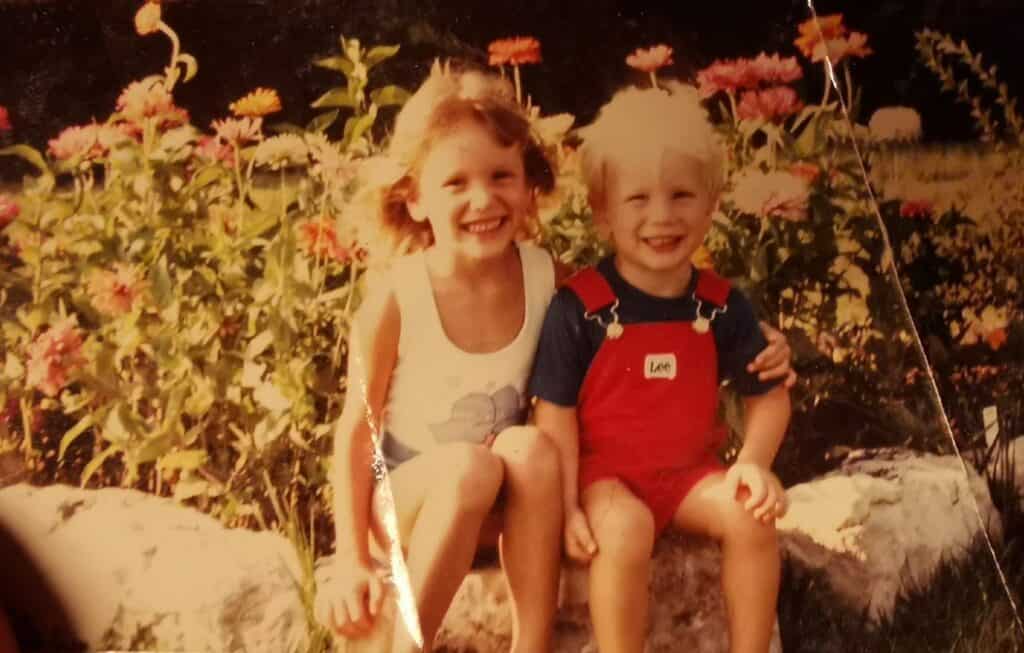
At times the entire floor was covered with clothes and I would just walk on top of everything.
Some of this behavior could be caused by the fact that I rarely got new things. Often if I asked for something new the answer was no.
When I was allowed to buy something, spur of the moment, it was usually heavily discounted.
This prompted me to pick out things that I thought my family could afford, not things that I actually liked.
(I did learn some really good things about money from my upbringing. I’ll never forget when my parents cut up their credit cards and decided to get out of debt. This taught me not to spend more than I make.)
because my family did not have a lot of money, I always wanted to remake or reuse items.
It is good to reuse things, but I lived in an overcrowded room and ruined a lot of perfectly good items trying to update my wardrobe.
I am the oldest child and I did not have any older cousins who gave me regular hand-me-downs.
I had no way of knowing if or when I would get any new clothes (with the exception of Christmas and birthdays when I was often given clothes I did not particularly like).
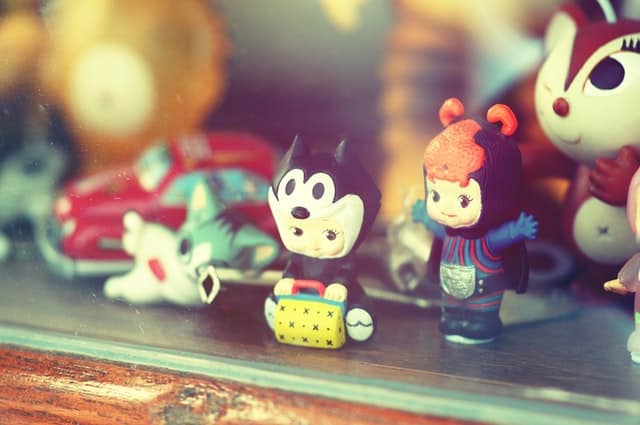
Knowing my family did not have a lot of money made me want to save everything.
This continued into Adulthood. I always bought extra winter clothes for the kids when they were on sale.
I rationalized that it was good to have ‘Just in case‘ we happened to be out of money when they needed new winter clothes.
Needless to say, this never happened, and the kids usually ended up with too many clothes.
It may have been cheaper to just wait until they needed the next size. This would have taken the guesswork out of the purchase because the kids often grew more than I expected. It would also have freed up space in the storage room.
The enjoyment that comes from having less, only the things you enjoy, is not something that has been taught in home economics classes or handed down from generation to generation.
If we are taught anything it’s how to clean the house and organize our stuff, but when you have too much stuff organizing won’t help.
It’s no wonder my generation is not good at this.
Hopefully, we can teach our kids the joy of having less.
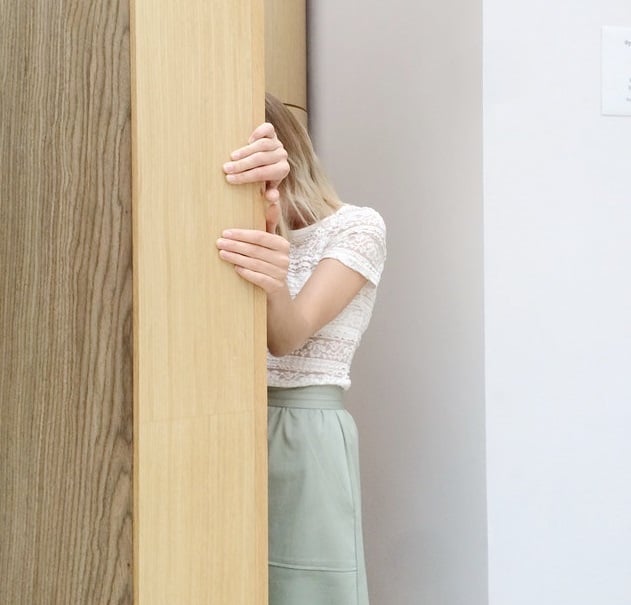
How I overcame my fear of letting go.
It wasn’t until I was frustrated with myself, for not being able to get rid of all the stuff I had accumulated and upset over all the time I was wasting trying to go through and organize my stuff, that I started to examine the motives behind my behavior.
- I wrote it down when I knew what the problem was. (It can be a good idea to go into some detail.) Is there an event in your past that could be the root of this behavior?
If so, write it down. If you don’t like to journal, try starting a journal in the form of an audio journal.
Most phones have a function that will record your voice if you want to talk instead of writing journal entries.
- I had to identify the fear that was causing my behavior in order to move forward. I was afraid I could not provide for my kids what they needed when they needed it. Fear of lack.
Does my fear have its source in the past? If there was an event in the past that could be the initial source of your fear you will have to deal with it.
This means talking to others who were involved. It could be calling your parents or a friend who remembers what happened.
Sometimes our fears are based on big misunderstandings like my friend’s misconception of her mother’s behavior.
- Forgiveness is key! Sometimes the past is really frightening and you have genuinely been hurt by others, assaulted, or abused.
You may not want to spend a lot of time talking to those who abused you, but in order for you to be free from them and the fear they caused you, you need to forgive them.
If you have a lot of hurt in your past you may need to seek counseling. Most communities have counseling services, and many churches offer this for free.
- What would happen if my fear came true? I asked myself what would happen if my husband and I completely ran out of money one month? The answer was easy. We have family and friends we could ask for help.
- Realize there is usually a soulation to your problems. Just asking these questions and finding a soulation to the worst case senerio can free us from fear.
This realization allowed me to let go of the mound of kids’ clothes. If we found ourselves lacking it was not the end of the world!
we could ask a family member to borrow money or we could ask a friend with kids who are the same size to borrow clothes. Problem solved.
- Ask for help! There is no shame in asking for help from friends, family, or a counselor.
- Pray
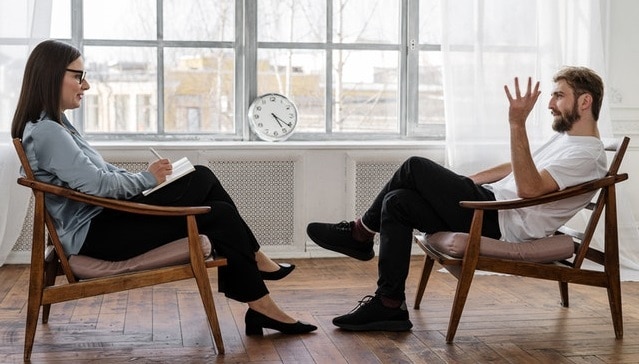
I didn’t get rid of everything, but in a few days, I cut the pile of hand-me-downs in half.
It’s those underlying fears we can not put our finger on that haunt us.
It’s these fears that have taken root in our lives and silently control our behavior.
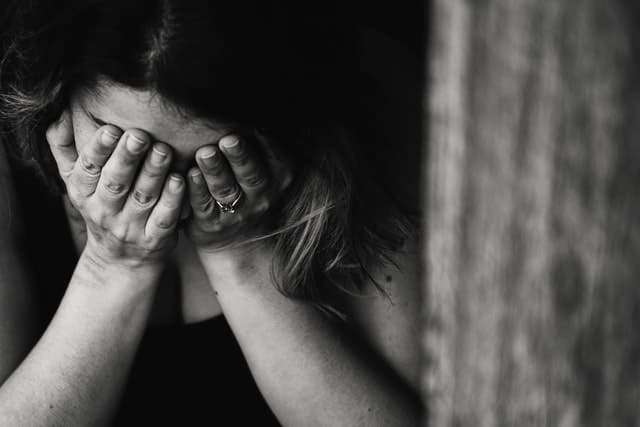
As long as we fail to identify these hidden fears they will continue to control us, and we will be powerless to stop them.
Take control of your life and face your fears!
If you need more help on your minimizing journey hopefully some of my other posts can help.
Click below.
Don’t make the same 10 minimizing mistakes I did!
Decluttering kids toys and other monsters in their rooms.
Minimalism and ADHD with Kids
A Monochrome bedroom decreased my daughters stress and ADHD
If you are interested in how my son (Who has ADHD) started us on a minimalism journey read the page on the inspiration for my blog. click below
The inspiration for my blog
If you have questions or comments please email me at annie@theadhdminimalist.com.


